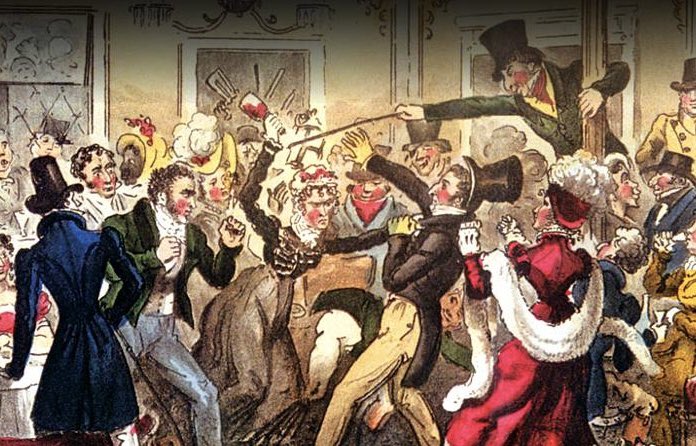[thread] Every time @LauraPidcock posts anything, no matter what the subject, you can guarantee that someone will pipe up with this gem: “weren’t you the MP that lost one of Labour’s safest seats?”, usually followed by some abuse to the effect that she should STFU. (1/16)
I’m not going to address the abuse today, not because I think it’s ok, but (a) Laura dealt with it very well the other day in a post and (b) even people who don’t agree with the abuse might be fooled into believing the underlying premise. So, let’s examine it. (2/16)
Firstly, how safe was the North West Durham seat? Well, in 2017, Laura won the seat with 25,308 votes (52.8%). Her majority then & going into the 2019 General Election was 8,792. By my calculations, that made it the 168th safest Labour seat in the country. (3/16)
Just to clarify. 167 Labour MPs at the 2019 General Election went into it with higher majorities & safer seats than @LauraPidcock. The biggest Labour majority at the 2017 GE was in Knowsley, with a whopping 42,214 majority - 33,422 more than Laura. Now that is safe. (4/16)
But also, 25 Labour MPs had majorities of over 30,000 & 54 had majorities of over 20,000. If we’re going to look at the actual figures & talk about the safest Labour seats in the country at #GE2019, these are the seats we should be talking about, not one 168th on the list. (5/16)
I think what people are getting confused with is that in the past, North West Durham was indeed a lot safer than it has been in recent years. Before 2019, it was a Labour held seat since 1950 - a long run. There was always a decent Tory vote, however. (6/16)
In 1997, with Hilary Armstrong as the candidate, Labour achieved its highest ever majority in NWD at 24,754. However, from that point until 2015, there is a steady swing away from Labour, whittling it away to 7,612 (2010) & 10,056 (2015) under Pat Glass. (7/16)
In 2017, Laura added over 5,000 more votes to that total, although her majority reduced slightly due to a Tory vote that gained over 6,000 more than in 2015. Even before Brexit, the signs were there of a Tory revival. This has local, demographic and national reasons. (8/16)
However, in 2019 one factor was decisive and tipped that Tory vote over the edge - Brexit. The best estimates say that North West Durham voted by 55% to Leave the EU, very similar to other constituencies in the former County Durham coalfield & the wider North East. (9/16)
Was @LauraPidcock uniquely responsible for losing her seat, in this context, as many people point out? Let’s see. If so, we’d certainly expect a sharper swing from Labour to Tory than in other similar constituencies in Durham and the North East in #GE2019, wouldn’t we? (10/16)
Ok, in North West Durham in 2019 the swing was 10.4% from Labour to Tory. In Blyth Valley, where Labour also lost a long held seat, it was exactly the same - 10.4%. In a key battleground - Bishop Auckland - where Helen Goodman lost, it was a little bit smaller - at 9.5%. (11/16)
In Sedgefield, where Blair loyalist & ardent Remainer Phil Wilson stood, the swing from Labour to Tory was 12.8%, a good 2.5% more than the swing against Laura. You wouldn’t think so if you took Twitter as the barometer, would you? (12/16)
What about the seats where Labour kept their MPs? In Easington, Grahame Morris lost over 7,500 votes in a 10.9% swing to the Tories. In Wansbeck, Ian Lavery hung on with a much reduced majority on a 11.3% swing to the Tories. For Kevan Jones in North Durham , it was 9.3% (13/16)
In all these majority Leave seats, the swing was roughly the same. With some local variation, it’s absolutely obvious to anyone looking at these results what the common & decisive factor was - which was the EU & Brexit, perfectly capitalised on, of course, by the Tories. (14/16)
This is not to say that politicians can’t buck the trend. I was still confident that we’d done enough to win in North West Durham, and we came close. Just 550 people needed to change their minds & vote for Labour - or - just 1,115 non-voters turning up & voting for Laura. (15/16)
But ultimately, all the political analysis points to one thing, awkward not just for those who want to make @LauraPidcock especially culpable, but those - incl those now in charge of @UKLabour - who pushed for a Second Referendum against very clear advice to the contrary. (16/16)
• • •
Missing some Tweet in this thread? You can try to
force a refresh












